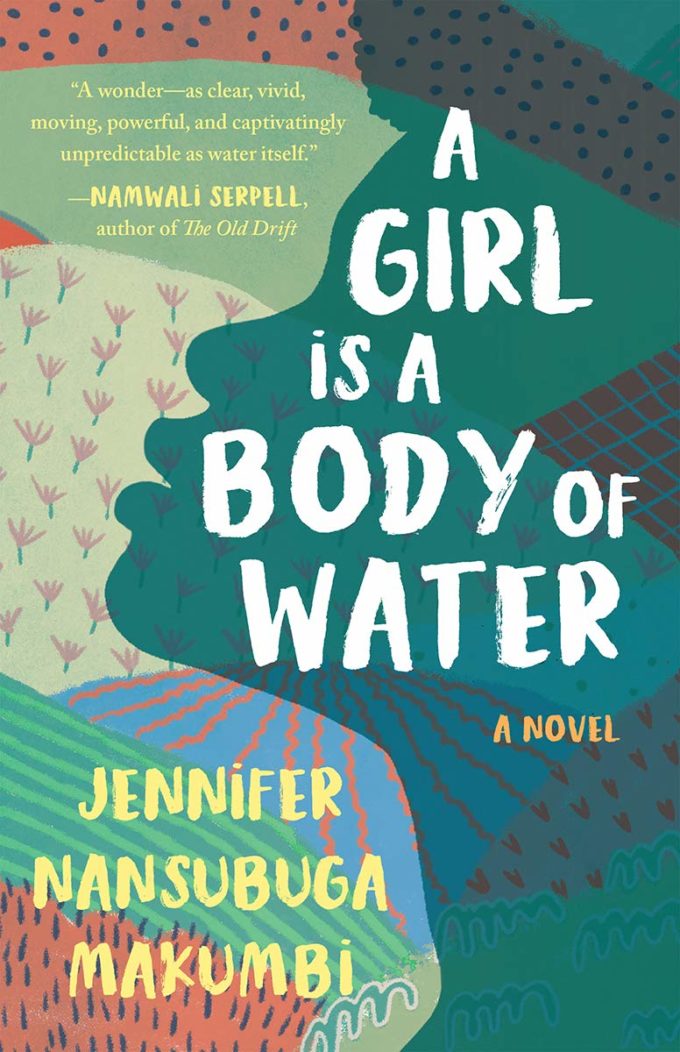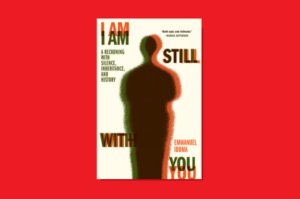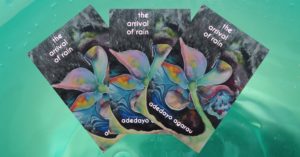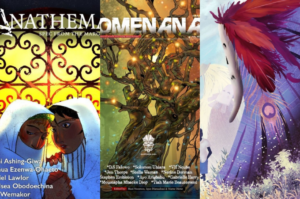
At the Uganda International Writers Conference in Kampala in May 2019, Jennifer Nansubuga Makumbi heightened anticipation for her newly-released novel, A Girl is a Body of Water (2020), by giving a glimpse of what it would contain.
To the packed hall of conference goers, and later a queue of readers seeking autographs for her short story collection, Manchester Happened, Makumbi stated that her novel would “pick women apart.” Reading A Girl is a Body of Water in the past weeks brought her statement into perspective. What Makumbi really meant was that her novel would give us an unapologetic and multi-layered take on feminism.
The novel tells the story of Kirabo, a strong-willed and intelligent girl in search for her birth mother. Despite the attention and love from her grandparents, curiosity drives the 12-year-old to seek out the woman who gave birth to her and, hopefully with it, the experience of a mother’s affection. Kirabo is ready to risk the wrath of her grandmother by consulting the village witch—Nsuuta—about her birth mother. Kirabo is ready to risk stoking village gossip by visiting Nsuuta, her grandfather’s lover and her grandmother’s childhood friend-turned-foe.
The novel is set in Uganda in the 1970s, a period when the country was still unswept by the waves of westernized notion of women’s emancipation as we know it today. Uganda was still under dictator Idi Amin Dada, known for his anti-women decrees such as a ban on miniskirts. Despite her era and age, Kirabo is unmistakably feminist. She asks seemingly mundane questions: why girls like her are expected to sit with their legs pressed together or discouraged from climbing trees. In a society where myths and legends were used to keep women culturally and socially in check, Kirabo keeps poking holes and asking questions—something discouraged in women, least of all, in a girl like her. In one of her visits to the village witch, Kirabo revealed one of her defiant acts:
“You know when people say ‘Don’t do that, you are a girl?’” Kirabo picked at Nsuuta’s mat, not meeting her eyes.
“Yes?”
“I wait until no one is around and do it,” she said. “Just to see what happens,” she added quickly. “Like the other time—”
“What did you do the other time?”
“You know the jackfruit tree behind our kitchen?”
Nsuuta nodded.
“I pulled down my knickers and flashed my…erm to see whether it would die or stop bearing fruit.”
Kirabo fights boys instead of standing by to take a beating. She plays football, hates doing house chores, hates kneeling and “can’t stand babies.” Kirabo tells Nsuuta that she feels “squeezed inside this body as if there is no space.” Luckily, unlike most girls and women of her era, Kirabo is able to mystically and physically fly out of her socio-cultural confinement to explore the world around her.
Makumbi also makes it apparent that feminism, as depicted in the novel, precedes its perceived Western origin; she gives it a Luganda name—mwenkanonkano—and fronts male feminists too. For instance, families in Nattetta Village entrust their daughters with Miiro, Kirabo’s grandfather, because in his care, the girls avoid getting married off or dropping out of school. Miiro’s mantra is “A girl uneducated is an oppressed wife in the making.” Miiro’s only sister loves visiting him because, in his house, there is “room to raise her voice and to stretch her legs.” At a time when land and property rights were in the hands of men, Miiro bends cultural rules and risks ridicule from fellow clan elders by ensuring Kirabo inherits her father’s property. He also stands up for Kirabo’s stepmother when other relatives bully and isolate her following her husband’s death.
There are women in the novel who support each other and push back at oppressive men and unfair societal demands. But there are also women who are obedient to gendered roles and societal expectations. These women keenly uphold patriarchy, consciously or otherwise. I couldn’t help but ask: what happens when women are left to their own elements? Makumbi takes us to a scene in a religious girls’ secondary school where we see women lifting each other and tearing each other apart in equal measure. We also see women who have the privilege of an education and enlightenment, struggle with the age-old dilemma—career or domestic duties?
Like it was in her debut historical novel Kintu and her short story collection Manchester Happened (published as Let’s Tell This Story Properly in the UK), Makumbi is a sucker for strong female protagonists. And like all her works, humor runs deep in this narrative and makes for a delightful reading.
Makumbi is very unapologetic about the use of language in this novel just like she does with the rest of her works. While she employs a lot of in-line translation of Luganda (her mother tongue), the novelist is very comfortable using Uglish— a Ugandan form of English influenced by Luganda and other Ugandan dialects—because she trusts her readers to get it. These language decisions make the novel authentically Ugandan and still very accessible to those unfamiliar with the country’s cultures and histories.
A Girl is A Body of Water is a spellbinding novel by a prolific storyteller. Having read all her previous works, the stakes were definitely raised higher in this book. The only reason I read A Girl is a Body of Water slowly was because I didn’t want to arrive at the last page so soon.








COMMENTS -
Reader Interactions